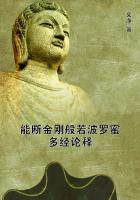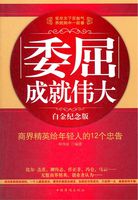Carmichael published "Breviuscula Introductio ad Logicam," which reached a second edition in 1722.He defines logic as the science which shows the method of discovering truth, and of expounding it to others.He represents it as having to do with judgment, but then it also treats of apprehension as necessary to judgment.Under apprehension he speaks of the doctrine of the difference of the comprehension and extension of a notion, and of the former being evolved by definition, and the latter by division, as being quite commonplace.He distinguishes between immediate and mediate judgment.Immediate is between two ideas immediately compared; mediate, in which the comparison is by means of a third judgment, is called discourse.He says all knowledge may ultimately be resolved into immediate judgments, known in their own light; and he divides immediate judgments into two classes: one abstract, in which there is no direction of the mind to the thing itself as really existing, <e.g.>, the whole is greater than a part;and the other intuitive, when the mind has a consciousness of the thing as present, as, for example, the proposition, <Ego cogitaits existo>.Coming to mediate judgment, he gives as the supreme rule of affirmative syllogism the axiom, "Things which are the same with one and the same third are the same with one another g, " and of negative syllogisms the axiom, " Things of which one is the same with a third, and the other not the same, are not the same with one another." These statements show a " thinking, poring," man, and will be valued most by those who have thought longest on these subjects.We see a new historical step in the transmission of the distinction between the extension and comprehension of a notion; we see that the difference between immediate and mediate judgments was known in these times; and that there was an attempt to find a supreme rule of mediate reasoning in the sameness (here lies the looseness) of two things with a third.Carmichael is aware that there are propositions seen to be true in their own light; and that there is an intuitive apprehension, in which the thing is known as present; and many will think that the <ego cogitaiis existo> is a preferable form to the <cogito ergo sum> of Descartes.
Carmichael published an edition of Puffendorf, " De Officio Hominis et Civis," with Notes and Supplements, for the use of students, described by Hutcheson as more valuable than the {41} original work.In the notes he offers many acute observations, and gives extracts from De Vries, Titius, and Grotius.In the first supplement he speaks of a divine law, to which all morality has reference, which alone obliges, and to which all obligation of human laws is ultimately to be referred.The law may be made known either by means of signs, oral or written, or by the constitution of human nature, and other things which offer themselves to the observation of men.What is known by the latter is called <natural law>, which has two meanings, -- one the faculty of reason itself as given to man by God, and the other such a power of intelligence as can discover what is in nature by ordinary diligence.He takes far higher grounds of religion than those adopted by Shaftesbury and Hutcheson.
He declares that no one can be said to obey the law who does not know what the law enjoins, or who acts without reference to God and his law.At the same time, he seems to be a eudaimonist, and inclined to look on God as having an ultimate respect to happiness in his law.He has a second supplement, calm, moderate, and sensible, on the " Duties of Man towards his own Mind," and a third on " Quasi-Contracts."
His latest work, published in 1729, shortly before his death, is " Synopsis Theologiae Naturalis." In his preface he tells us that, in teaching pneumatology, he had used two Belgian textbooks.He advises that the forms of the Aristotelian school be avoided, as obscure and artificial, but declares at the same time that the doctrines of the scholastics, at least of the older, are more agreeable to reason and holy Scripture than those opposed to them in his day, especially in their finding a foundation for morality and obligation in God; and he denounces some who, of late years, with a showy appearance of genius and eloquence, would separate morality from religion, referring, I should suppose, to the school of Shaftesbury, against which, therefore, he thus gives his dying testimony, as it were in the name of.the old philosophy.
In establishing the existence and perfections of God, he draws arguments from a variety of sources.He would call in metaphysical principles.Thus he urges that there must be <ens aliquod independens>, otherwise we are landed in an infinite series of causes, which he declares (with Aristotle) self-evidently impossible.He appeals, with the French theologian Abbadie, {42} to universal consent.But he reckons the arguments of Descartes and De Vries, and that by Samuel Clarke, as unsatisfactory.He maintains that we can argue that what we attribute to a thing in idea exists, only after we have shown that the thing exists.He maintains that the existence of God as an existing being is to be established, not <a priori>, but <a posteriori>, and appeals to the traces of order, beauty, and design in the universe, and to the illustrations to be found in the writings of Ray, Pelling, Cheyne, Derham, Niewentite, and in Pitcairn on the Circulation of the Blood.He refers to the properties of matter, as established by Newton; and argues, as Baxter did so resolutely afterwards, that matter cannot move of itself, but needs a new force impressed on it.In regard to the dependence of creature on created power, he holds that things spiritual and corporeal exist so long as they have being from the creative efficacy of God, and speaks of the need of a divine <precursus> or <concursus>.He admits, however, that created spirits have efficacy in themselves.
He refers to Leibnitz, and shows that he was well acquainted with his theory of possible worlds.It is surely interesting to observe a modest and retiring Scottish writer so thoroughly acquainted with the highest philosophy of his time, British and Continental, and yet retaining his own independence in the midst of his learning.If he cannot be regarded as the founder of the new school, he has the credit of judiciously combining some of the best properties of the old and new philosophy.















